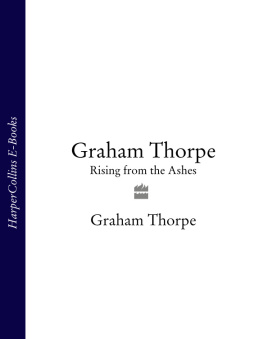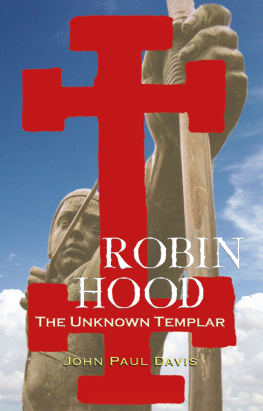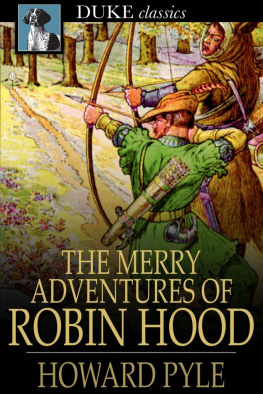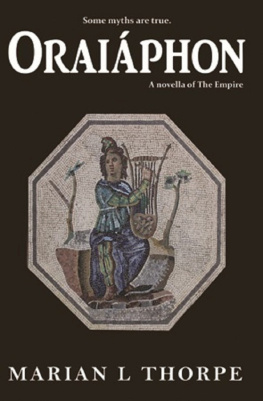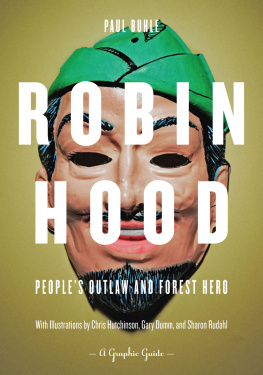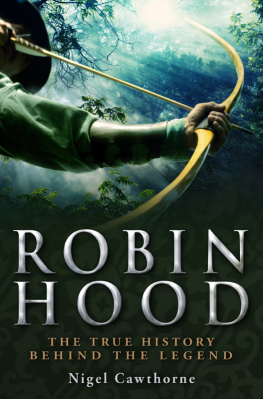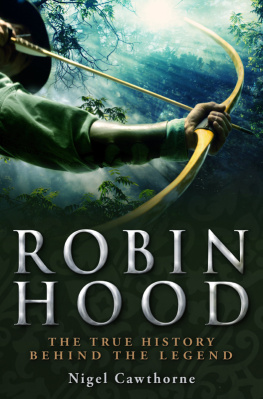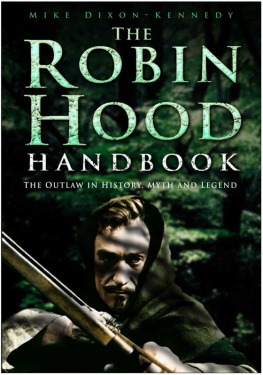About the Book
An extraordinary narrative gripping and unrelenting in its remarkable portrayal of the underside of medieval society No-one who reads this will think of Robin Hood and his merry men in quite the same way again Scotsman
Who was Robin Hood? A folk hero of Sherwood Forest who stole from the rich to give to the poor? The early ballads portray a quite different figure: impulsive, violent, vengeful, with no concern for the needy and no merry band.
Thus Hodd turns romantic legend on its head. The narrator, an elderly monk, recalls his boyhood as a minstrel in the greenwood, following a half-crazed bandit called Robert Hodd, who believed himself above God and beyond sin. But, as the monk slowly reveals Hodds true nature as a murderous felon, he must also wrestle with his own conscience, for it was his youthful ballads that elevated the outlaw into a popular hero.
A fascinating and complex novel as remarkable in its way as UlvertonTimes Literary Supplement
A tour de force Wonderfully subtle and layered Literary Review
Acknowledgements
With grateful thanks to Jas Elsner and Zo Swenson-Wright for their invaluable help, to Niek Miedema, my editor Robin Robertson and my agent Lucy Luck for their support, and to my wife Jo and my children Joshua, Sacha and Anastasia for their encouragement, humour and love.
1
T he seas are folded over us, above our heads, the lower sea becoming the upper sea and yet still blue when not girt with sea mist, which is grey and melancholy. Some men when they look up see birds, but I see only a kind of fish, sometimes in great shoals. These fish are beaked and feathered, as we all know, and return to dry land to nest in trees, shrubs, meadow grass or crops, rocks or walls, or even under our own thatch, where the nestlings make a great beseeching noise that might keep us from sleep.
Only birds pass from the skys air to its water without harm, for they have the property, like the fish of the lower sea, of breathing underwater. And I have seen with my own eyes a cormorant swimming under the water of the lower sea, and a myriad of gannets plunging into its waves at a good distance from its cliffs. Likewise do birds plunge into and out of the blue of the upper sea without harm.
If men sail far enough, namely a sufficient number of leagues beyond the horizon, they unwittingly pass over our heads, yet too high up to discern us or the dark of our forests through the blue of the waters of the upper sea.
It has been recounted to me that mariners have lost knives overboard and that these same knives have been found caught in trees, or that they plunge through a [thatched] roof to stand upright and trembling in a table, to the surprise of those eating. And fish sometimes fall (as we know) from the sky, like arrow-struck birds, but with no visible wound.
I myself once found a piece of cork ballast in the middle of a field, very far from the sea. I looked up and saw a dark cloud in the shape of a ship, as if I was perceiving it from underneath. In former ages perhaps men knew of such things, having greater clarity and knowledge, since it is well known that we have declined in wisdom, and are running further and further into ignorance as the world approaches its end in the manner that St Paul foretold. I myself have heard the faint echo of infernal torments discernible on the wind, as these come closer and closer towards us, heralded by the blast of trumpets.
If I had happened not to have met with the outlaw called Robert Hod, so many years ago that none are still living from that time but myself, I would be less tormented in my spirit; for quite apart from the other matters it was Hodde who put strange ideas and questionings into my head.
Alas, the autumn day I first saw him long ago was indeed grown so wet, that the upper seas must have spilt much of their waters in their seething. My master [brother Thomas] and I were travelling the main highway between Yorke and Dancaster: this being a journey of some ten hours, or cavort like buffoons in his plays, but only small woods or copses, though albeit dark and tangled, between uncultivated heathland [locis incultis].
The chief vice of my master brother Thomas being that he loved wine immoderately, like a lecher loves women, he would pass easily from cheer of heart into sin, uttering gross words. And these sins of the tongue were worsened by his shrill voice, that despite his fatness was almost like a sparrows. He was the cellarer of his house, full of smooth-limbed maidens besporting for his pleasure.
My master having conducted his business at the Orders house in Yorke (following the sudden migration to the Lord of brother Bernard, their own cellarer), we were returning thence to Danncaster. I accompanied my master everywhere, because he had a love of ballads and music, as much as he did of wine and fishing and roasted meat, and we had lessons together in writing and reading that the glory of books might be opened to me yet wider, for his great desire was that I might become a master scrivener [scriptor] if not to take the cowl myself one day. It was well known that I was not merely a kitchen servant but brother Thomass page, and might have been an oblate were I the possessor of a parent with a fat purse.
Brother Thomas was not a monk by choice, but by fate; he would neer call it Gods will. He had fled after scandal into the silence of the high walls of the monastery, from a family he claimed was noble and of Norman stock. Despite his reckless nature, he had a great fear of Hell, and of its heat and its cold, and when one day a fire consumed one of the abbeys barns, the stink of charred wood that lingered afterwards made him very melancholy, at the thought of what might await him. He was very kind at times: when it was once extremely cold and I was feeble with a chill, I turned blue and seemed as if dead, and there being no heating except in the calefactory where I was not permitted, he and the other monks pressed me in a circle to their bosom (as a sow might warm its litter), and I was revived.
We were returning to St Edmunds after an absence of six days. Although we had a pack pony, aside from my masters mount, I was on foot. We knew it was a perilous journey, even by day, for that way crossed the high heathland; but in those times all journeyings had their perils where robbers and murtherers lurked behind trees or thickets and we must trust ourselves to God een now, for nothing has changed for the better except that the Day of Judgement is closer, and perhaps very close, maybe but an hour or two off!
Unlike our going northward, where there was a continual clatter of carts, pilgrims, pedlars and so forth, the way was emptier on our return. Because it was a Sunday, and the clouds most thick and dark to the west, and there being a witless rumour that a group of some twenty singing lepers were on the road, measling all in their path including pigs and cattle, there was no one else in view either way upon that wild stretch, which caused us much alarm.
The black clouds coming over our heads and their heavy load beginning to fall, our progress was slowed: my masters horse slid about in the clay and my own tread was hampered by the sucking of the slippery earth. I might have been mounted with the baggage, but our pack pony [equus parvus clitellarius] breathed as though with small bellows, and my master having been given much weight of gifts (including a barrel of ale and a mantle furred with miniver), he said I must not overload the midriff.
There being several steep declivities, the way became perilous, and the river where we must ford it was already swollen, so that the great crossing-stones were scarce visible. past the three gibbets that let their miserable occupants look out from their bony sockets upon a great distance of hills.
Next page




